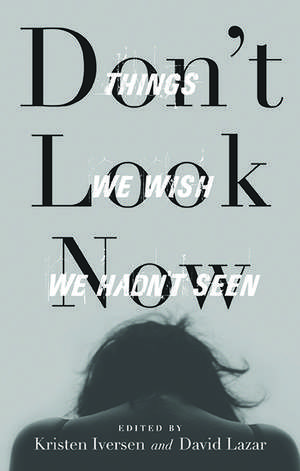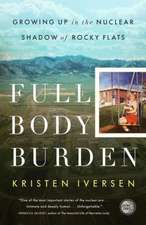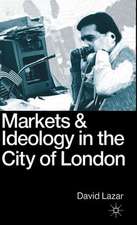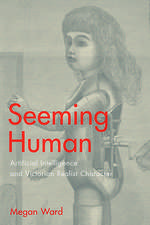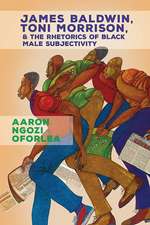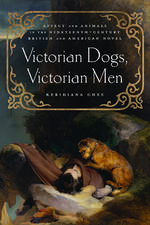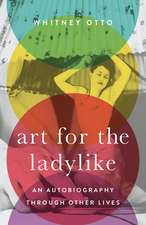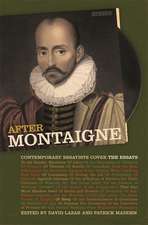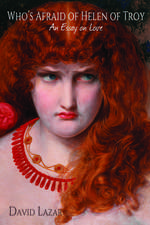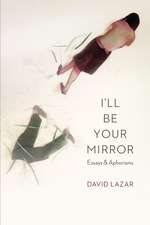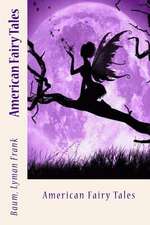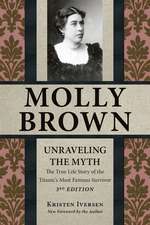Don't Look Now: Things We Wish We Hadn't Seen: 21st Century Essays
Editat de David Lazar, Kristen Iversenen Limba Engleză Paperback – 15 oct 2020
Featuring essays by Jericho Parms, XU XI, Jerald Walker, José Orduña, Kristen Iversen, Nicole Walker, Mary Cappello, Lina Ferreira, Colleen O’Connor, Sonya Huber, Paul Crenshaw, Alyce Miller, Patrick Madden, Amelia María de la Luz Montes, Yalie Kamara, Emily Heiden, Lee Martin, and David Lazar,
this collection bares all. The authors invite readers into a dream that resurrects a departed mother each night, only to lose her again each morning upon waking; the post-mortem newspaper photos of a former student; kaleidoscope childhood memories of the mundane mixed up together with the traumatic; an unplanned pregnancy; a bullfight and a spouse’s mortality; a teen witnessing the suicide of her father; a parent trying to shield his children from witnessing a violent death. What these writers are after, though, is not the melancholic/grotesque/violent moment itself, but the process of remembering—and trying to forget. They examine the way these memories take hold, resurface, and never leave, and what it means for a life lived long after these moments have passed. These scenes, slowly enfolding us like bad dreams or flying by like trains on elevated platforms, demand we reach some kind of accommodation with them—make peace or make sense or make amends. The one thing they insist with certainty is this: they cannot—will not—be unseen.
Din seria 21st Century Essays
-
 Preț: 160.80 lei
Preț: 160.80 lei -
 Preț: 144.33 lei
Preț: 144.33 lei -
 Preț: 108.17 lei
Preț: 108.17 lei -
 Preț: 140.55 lei
Preț: 140.55 lei -
 Preț: 111.26 lei
Preț: 111.26 lei -
 Preț: 105.16 lei
Preț: 105.16 lei -
 Preț: 112.49 lei
Preț: 112.49 lei -
 Preț: 106.20 lei
Preț: 106.20 lei -
 Preț: 127.45 lei
Preț: 127.45 lei -
 Preț: 108.03 lei
Preț: 108.03 lei -
 Preț: 140.47 lei
Preț: 140.47 lei -
 Preț: 103.91 lei
Preț: 103.91 lei -
 Preț: 155.05 lei
Preț: 155.05 lei -
 Preț: 147.11 lei
Preț: 147.11 lei -
 Preț: 145.35 lei
Preț: 145.35 lei -
 Preț: 174.52 lei
Preț: 174.52 lei -
 Preț: 178.10 lei
Preț: 178.10 lei -
 Preț: 148.67 lei
Preț: 148.67 lei -
 Preț: 169.63 lei
Preț: 169.63 lei -
 Preț: 132.52 lei
Preț: 132.52 lei -
 Preț: 176.88 lei
Preț: 176.88 lei -
 Preț: 143.44 lei
Preț: 143.44 lei -
 Preț: 144.05 lei
Preț: 144.05 lei -
 Preț: 148.41 lei
Preț: 148.41 lei -
 Preț: 149.08 lei
Preț: 149.08 lei -
 Preț: 166.85 lei
Preț: 166.85 lei -
 Preț: 173.49 lei
Preț: 173.49 lei -
 Preț: 172.68 lei
Preț: 172.68 lei -
 Preț: 103.72 lei
Preț: 103.72 lei -
 Preț: 119.18 lei
Preț: 119.18 lei -
 Preț: 138.15 lei
Preț: 138.15 lei
Preț: 166.05 lei
Nou
Puncte Express: 249
Preț estimativ în valută:
31.78€ • 32.83$ • 26.43£
31.78€ • 32.83$ • 26.43£
Carte disponibilă
Livrare economică 22-28 februarie
Livrare express 11-15 februarie pentru 25.40 lei
Preluare comenzi: 021 569.72.76
Specificații
ISBN-13: 9780814256015
ISBN-10: 0814256015
Pagini: 240
Greutate: 0.34 kg
Ediția:1
Editura: Ohio State University Press
Colecția Mad Creek Books
Seria 21st Century Essays
ISBN-10: 0814256015
Pagini: 240
Greutate: 0.34 kg
Ediția:1
Editura: Ohio State University Press
Colecția Mad Creek Books
Seria 21st Century Essays
Recenzii
“[The collection] will appeal to readers drawn to how literature can be used to confront, and possibly get past, damaging memories.” —Publishers Weekly
“Don’t Look Now: Things We Wish We Hadn’t Seen merits its title—a series of scarifying essays on sights, scenes, and memories we might have rather missed. But this not-to-be-missed collection becomes its own bright antidote and, for the reader, a gift.” —Nicholas Delbanco, author of Why Writing Matters and Curiouser and Curiouser: Essays (OSU Press, 2017)
“A typewriter tattoo, the body bent in prayer, the hazy outline on an ultrasound screen—these are some of the stark and humbling and heartbreaking images shared in an anthology of voices so rich and varied. Even more than the moments these writers can’t unsee, this haunting collection of essays will stay with you too.” —Sonja Livingston, author of Ghostbread
“How does the heart bear unbidden shock? What are the rules of engagement with ferocious memories? These gorgeous essays perform acts of homage, bravery, and forgiveness; show what can be made of the searing left by life-altering experiences; and point us toward a deeper understanding of both vulnerability and the capacity to rebuild at the blast site.” —Lia Purpura
“Don’t Look Now: Things We Wish We Hadn’t Seen merits its title—a series of scarifying essays on sights, scenes, and memories we might have rather missed. But this not-to-be-missed collection becomes its own bright antidote and, for the reader, a gift.” —Nicholas Delbanco, author of Why Writing Matters and Curiouser and Curiouser: Essays (OSU Press, 2017)
“A typewriter tattoo, the body bent in prayer, the hazy outline on an ultrasound screen—these are some of the stark and humbling and heartbreaking images shared in an anthology of voices so rich and varied. Even more than the moments these writers can’t unsee, this haunting collection of essays will stay with you too.” —Sonja Livingston, author of Ghostbread
“How does the heart bear unbidden shock? What are the rules of engagement with ferocious memories? These gorgeous essays perform acts of homage, bravery, and forgiveness; show what can be made of the searing left by life-altering experiences; and point us toward a deeper understanding of both vulnerability and the capacity to rebuild at the blast site.” —Lia Purpura
Notă biografică
Kristen Iversen is the author, most recently, of Full Body Burden: Growing Up in the Nuclear Shadow of Rocky Flats. Her essays and stories have appeared in the New York Times, The Nation, Reader’s Digest, Fourth Genre, and elsewhere. Iversen is Professor of Creative Writing at the University of Cincinnati and serves as the Literary Nonfiction editor of the Cincinnati Review.
David Lazar is the author of the soon to be released Celeste Holm Syndrome. He is Professor of Creative Writing at Columbia College Chicago and a former Guggenheim Fellow in Nonfiction. Lazar is the founding editor of the literary magazine Hotel Amerika and series coeditor of 21st Century Essays at Mad Creek Books.
David Lazar is the author of the soon to be released Celeste Holm Syndrome. He is Professor of Creative Writing at Columbia College Chicago and a former Guggenheim Fellow in Nonfiction. Lazar is the founding editor of the literary magazine Hotel Amerika and series coeditor of 21st Century Essays at Mad Creek Books.
Extras
I am thinking of shapes, how the snake and curve of a line becomes a figure eight, becomes two rings joined, everlasting, never-ending. I am thinking of the letter S and how it is nearly one infinite chain. Nearly, but not. On my inner wrist there is a scar—one I’ve had since girlhood—that looks like something written in sand and partially blown away. I want to conjure the tides, but I am so far from the ocean as I write that memory spirals away from me. Perhaps whatever follows in these lines I owe to that distance. And to the swimmers and oceanographers, scientists and shore divers, mariners and mystics, artists, biologists, storm chasers, and foragers who face the erosion of beauty every day, the alchemy of memory— the elusive reel none of us can control. If scars serve as a lighthouse to the past, how do we determine the future? If only memory could expose the path ahead. If only we could receive signals from the moon.
*
In the 1988 film Cinema Paradiso, written and directed by Giuseppe Tornatore, set against the backdrop of an Italian village just after World War II, a young Salvador di Vita, along with other townspeople, escapes dark postwar realities by frequenting the village movie theater. The local priest, acting as the moral censor, is ever-present, ensuring nothing untoward appears on screen during the films, which he has already screened, demanding that all kissing scenes be edited out prior to their premiere. In Tornatore’s film, Salvatore befriends a projectionist, Alfredo, who takes a liking to the mischievous boy, lets him watch movies from the projection booth, and ultimately teaches him how to operate the projector.
*
I befriended a projectionist, too. During a long winter I found myself broke in a small New England town. I worked the concession stand in a two-screen movie theater on Main Street because it wasn’t enough to teach, and because having recently emerged from a few years of depression and anxiety, I wanted the monotony of shift work, show times, a decorated tip jar, and the distraction of a changing marquee. I had just turned thirty; I was in love with a man but characteristically reluctant to define that love as I attempted to navigate the push and pull between freedom, independence, and responsibility to others.
Although nearing seventy, Bill, the theater’s main projectionist, has the energy of a young man. He plays tennis when he can, tells stories about his days in the circus, and crams into a small sedan with his friends and heads to the beach. He loves film more than anyone I’ve known. He grows easily frustrated, in large part because he likes a certain order, timeliness, and takes his work as lead projectionist seriously, as craft. But when a film is on and there is time to kill, he talks on end. Bill routinely pulls from the booth his folding chair and positions himself next to the concession counter in the tiny house lobby. Although he always has a book and his glasses ready, he rarely makes a dent in his reading during our shifts together. Instead we fill the time with stories from our vastly different lives.
*
In the 1988 film Cinema Paradiso, written and directed by Giuseppe Tornatore, set against the backdrop of an Italian village just after World War II, a young Salvador di Vita, along with other townspeople, escapes dark postwar realities by frequenting the village movie theater. The local priest, acting as the moral censor, is ever-present, ensuring nothing untoward appears on screen during the films, which he has already screened, demanding that all kissing scenes be edited out prior to their premiere. In Tornatore’s film, Salvatore befriends a projectionist, Alfredo, who takes a liking to the mischievous boy, lets him watch movies from the projection booth, and ultimately teaches him how to operate the projector.
*
I befriended a projectionist, too. During a long winter I found myself broke in a small New England town. I worked the concession stand in a two-screen movie theater on Main Street because it wasn’t enough to teach, and because having recently emerged from a few years of depression and anxiety, I wanted the monotony of shift work, show times, a decorated tip jar, and the distraction of a changing marquee. I had just turned thirty; I was in love with a man but characteristically reluctant to define that love as I attempted to navigate the push and pull between freedom, independence, and responsibility to others.
Although nearing seventy, Bill, the theater’s main projectionist, has the energy of a young man. He plays tennis when he can, tells stories about his days in the circus, and crams into a small sedan with his friends and heads to the beach. He loves film more than anyone I’ve known. He grows easily frustrated, in large part because he likes a certain order, timeliness, and takes his work as lead projectionist seriously, as craft. But when a film is on and there is time to kill, he talks on end. Bill routinely pulls from the booth his folding chair and positions himself next to the concession counter in the tiny house lobby. Although he always has a book and his glasses ready, he rarely makes a dent in his reading during our shifts together. Instead we fill the time with stories from our vastly different lives.
Cuprins
Contents
Acknowledgments
Introduction
My Paradiso
Jericho Parms
But for the Grace
XU XI
Wars
Jerald Walker
X
José Orduña
Love and Death in Mexico
Kristen Iversen
Lizard Brains
Nicole Walker
To Love Me, or The Intruder’s Tattoo
Mary Cappello
The Red Parakeet
Lina Ferreira
Unsightly
Colleen O’Connor
Those Were the Days
Sonya Huber
Morgue
Paul Crenshaw
Fire
Alyce Miller
The Death of the Dog
Patrick Madden
Trigger Warnings
Amelia María de la Luz Montes
Home
Yalie Kamara
Scenes from July 2013
Emily Heiden
Can You Tell Me What You Saw?
Lee Martin
Muse of Brooklyn: I Would Never Study but in My Dreams
David Lazar
Contributors
Acknowledgments
Acknowledgments
Introduction
My Paradiso
Jericho Parms
But for the Grace
XU XI
Wars
Jerald Walker
X
José Orduña
Love and Death in Mexico
Kristen Iversen
Lizard Brains
Nicole Walker
To Love Me, or The Intruder’s Tattoo
Mary Cappello
The Red Parakeet
Lina Ferreira
Unsightly
Colleen O’Connor
Those Were the Days
Sonya Huber
Morgue
Paul Crenshaw
Fire
Alyce Miller
The Death of the Dog
Patrick Madden
Trigger Warnings
Amelia María de la Luz Montes
Home
Yalie Kamara
Scenes from July 2013
Emily Heiden
Can You Tell Me What You Saw?
Lee Martin
Muse of Brooklyn: I Would Never Study but in My Dreams
David Lazar
Contributors
Acknowledgments
Descriere
Essays about the things we see that we can’t unsee and how we carry on in the wake of those moments.
